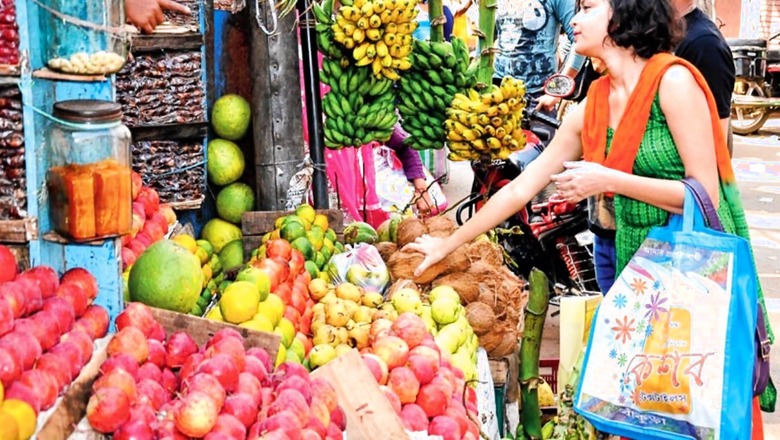
views
Though the retail inflation in March touched a 17-month high of 6.95 per cent led by a jump in the prices of fuel and food items such as vegetables, milk, meat, and cereals, it may continue to remain elevated amid price rise in essential medicines in April. It may also prompt the RBI to go for rate hikes as soon as June since controlling inflation has now taken the center stage for the central bank than pushing growth. Here’s all about the latest inflation data and expectations going forward:
What Pushed Up Inflation in March
The inflation in March shot up mainly due to costlier food items. The inflation in the food basket during the month stood at 7.68 per cent, up from 5.85 per cent in the previous month. Core inflation, which excludes food and fuel components, also rose to a 10-month high of 6.29 per cent in March.
Food and vegetable items’ prices have jumped in the country with lemon touching as high as Rs 250 and other essential commodities also being costlier. This is due to the recent crop damages in some parts of the country due to cyclones and higher transportation costs amid a rise in international crude oil prices on the Russia-Ukraine war.
Impact on Markets
India’s benchmark 10-year government bond yield on Tuesday touched a record high of 7.19 per cent after rising four basis points amid worries over rising inflation in the country and tight monetary policy to suck liquidity going forward. The rupee also fell 23 paise to close at 76.14 against the dollar. The BSE benchmark Sensex also declined by 388 points to 58,576.37, and the NSE Nifty lost 144 points to close at 17,530.30.
Inflation Going Forward
Ratings agency India Ratings in a report said it has been pointing out that the health and household goods/ services inflation is turning structural because in the past 15 months, health inflation has been in excess of 6 per cent and household goods/ services inflation in excess of 5 per cent in the past 10 months . “Going forward, with the increase in the cost of essential medicines from April 2022, health inflation is likely to exert further pressure on retail inflation.”
Recently, the National Pharmaceutical Pricing Authority allowed a 10.7 per cent jump in prices of scheduled drugs, which are under price control, the highest price hike allowed.
CRCL Chief Executive and Managing Partner D R E Reddy said prices of commodities in India during April will be guided by the weather condition and the impact of the geopolitical scenario.
Now, the fuel prices have remained unchanged for a week now on the back of cooler crude oil prices. If the Russia-Ukraine war exacerbates, it may increase crude oil prices, which may further push the domestic food and other items’ prices upwards.
As per the latest RBI survey, households also expect inflation for both three months and one year to rise above the 10 per cent mark.
What It Means For RBI Policy
The rising inflation in the country has increased the chances of the RBI’s Monetary Policy Committee going for rate hikes faster and earlier than now expected. The RBI is tasked with keeping inflation within the range of 2-6 per cent. The CPI-based inflation, which is the reference point for the RBI to arrive at its bi-monthly monetary policy, has remained above the central bank’s comfort zone with the rate in January at 6.01 per cent and February at 6.07 per cent.
Now, with the inflation rate in March being the highest in 17 months, analysts expect the RBI to go for a rate hike as soon as June. India Ratings in its latest commentary said it believes April 2022 monetary policy has sown the seeds firstly liquidity normalisation and thereafter policy stance/policy rates. “We expect a 50 bps hike in policy rates in FY23. However, the time of rate hike will be data-dependent.”
ICRA Chief Economist Aditi Nayar said, “The rate hike cycle may begin as early as June 2022 if the next CPI inflation print doesn’t significantly cool off from the March 2022 level. We now expect to see 50-75 bps of rate hikes by the end of Q2 FY2023, followed by a pause in H2 FY2023, and perhaps another 50 bps of hikes in FY2024.”
Read all the Latest Business News and Breaking News here

















Comments
0 comment